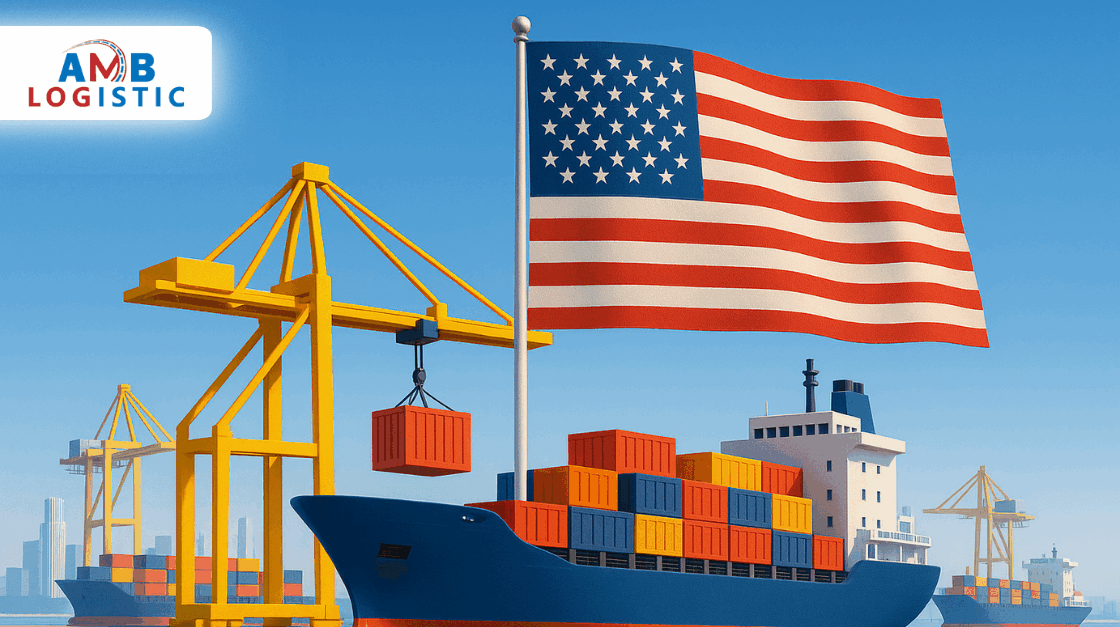
The U.S. is making a bold move in trade enforcement. Beginning August 31, 2025, the de minimis exemption — which allowed goods under $800 to bypass formal customs entry — will be eliminated for all countries.
For years, this exemption fueled the boom in e-commerce imports, letting companies ship low-value goods into the U.S. without paying duties or filing formal customs documentation. Now, that loophole is closing.
The impact will be seismic for importers, brokers, freight forwarders, and e-commerce retailers alike.
What Is the De Minimis Exemption?
Previously, U.S. customs law allowed low-value shipments (under $800) to:
- Enter duty-free
- Avoid detailed customs declarations
- Move quickly through last-mile carriers
This system supported high-volume, small-package imports from countries like China, Vietnam, and India — particularly for fast-fashion, electronics, and direct-to-consumer (D2C) retailers.
What’s Changing?
Under the new rule:
- Every shipment, regardless of value, must have a formal customs entry.
- Duties and taxes will apply to goods previously exempt.
- Additional documentation (invoices, HS codes, importer ID, etc.) will be required.
- Customs and Border Protection (CBP) will use AI-powered risk assessment to scrutinize small parcels.
This isn’t just a policy tweak — it’s a rewiring of how cross-border e-commerce operates.
Why Is This Happening?
The U.S. government cites multiple reasons:
- Trade Fairness – Domestic manufacturers have long argued that de minimis gave foreign sellers an unfair cost advantage.
- Revenue Recovery – Billions in unpaid duties slipped through under the exemption.
- Security Concerns – The lack of data on low-value imports created blind spots for enforcement against unsafe or counterfeit goods.
The new rules aim to level the playing field — but they also add complexity.
Who Will Be Hit the Hardest?
1. E-commerce Giants & Marketplaces
Platforms that relied on direct shipping from overseas warehouses (e.g., Shein, Temu, AliExpress) face slower deliveries and higher costs.
2. Small Importers
Smaller retailers that ship small quantities from overseas suppliers will see higher per-unit landed costs.
3. Brokers & Freight Forwarders
Brokers will face a surge in customs entry workload as every package now requires formal clearance.
Opportunities Hidden in the Chaos
While the change brings challenges, it also creates opportunities:
- Bonded Warehousing & FTZs
Importers can defer duties by using bonded facilities or operating within Foreign Trade Zones (FTZs). - U.S.-Based Consolidation
Expect more bulk importing with domestic distribution to reduce per-shipment compliance costs. - Brokerage Partnerships
Brokers offering digital customs clearance solutions will see increased demand. - Technology Adoption
Automation of documentation and AI-based compliance tools will become a must-have.
What Importers Should Do Now
✅ Audit Your Supply Chain
Identify SKUs and suppliers affected by the rule.
✅ Review Cost Models
Factor duties and compliance costs into pricing.
✅ Partner With Experienced Brokers
Ensure smooth customs entries without delays or fines.
✅ Consider Alternative Sourcing
Shift sourcing toward trade agreement countries to offset tariff exposure.
How AMB Logistic Helps Clients Prepare
At AMB Logistic, we specialize in helping businesses navigate trade complexity. With our expertise in:
- Bonded freight strategies
- FTZ integration
- Customs compliance management
- Data-driven lane optimization
We empower our clients to adapt early and avoid costly disruptions.
Our team is already working with importers to streamline documentation and adjust routing strategies for the post-de minimis era.
Final Word: Compliance Is the New Competitive Advantage
The end of the de minimis exemption is a line in the sand for global trade.
Businesses that plan now — by embracing compliance, optimizing sourcing, and leveraging technology — will emerge stronger.
At AMB Logistic, we turn regulatory hurdles into opportunities for smarter logistics.
📞 Worried about how this change affects your imports?
Our experts are here to guide you through the transition.
📧 info@amblogistic.us
🌐 www.amblogistic.us
📍 Troy, MI
Tags:
USImportRules2025, CustomsCompliance, AMBLogistic, DeMinimisAbolition, TradePolicyShift, FTZStrategy, BondedFreight, ECommerceLogistics, SupplyChainResilience, TariffImpact, SmartFreight




